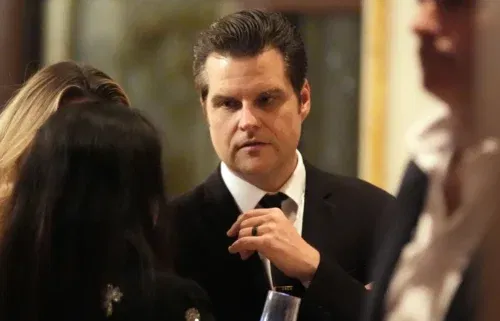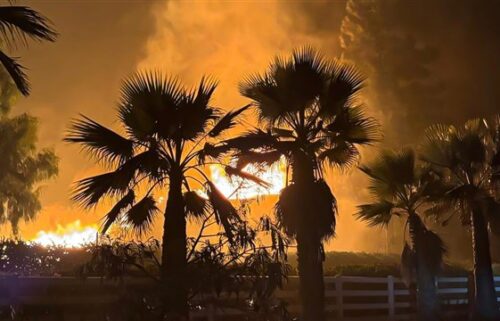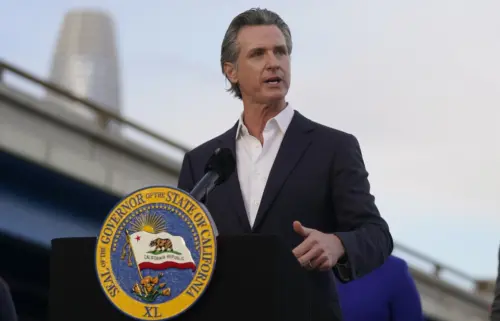Biden and Zelenskyy sign security deal as Ukraine’s leader questions how long the unity will last
By COLLEEN LONG and DARLENE SUPERVILLE
Associated Press
FASANO, Italy (AP) — President Joe Biden and Ukrainian leader Volodymyr Zelenskyy signed a 10-year security agreement Thursday that they hailed as a milestone in relations between their countries, but that alone was not enough to stop Zelenskyy from wondering how much longer he could count on America’s support.
Zelenskyy also said his country “urgently” needed additional air defense systems to protect Ukrainians and the nation’s infrastructure from Russia’s continued bombardment.
The leaders signed the agreement on the sidelines of the annual Group of Seven summit, held this year in Italy, and Biden said the goal “is to strengthen Ukraine’s defense and deterrence capabilities.”
Zelenskyy said at a joint news conference that the signing made for a “truly historic day,” but he also wondered about the durability of support from the United States and other allies.
Ukraine’s president said the right question to ask is “for how long the unity in the world will remain? The unity in the U.S., together with European leaders” and how it will be influenced by the outcome of elections this year in many of those countries.
Topping that list is voting in the U.S. in November in a campaign that could see the return of Republican Donald Trump to the presidency. Trump has been skeptical of providing additional military aid to Ukraine, at one point criticizing the “endless flow of American treasure.” He more recently has expressed openness to lending money instead and has said Ukraine’s independence is important to the United States.
Biden said the U.S. has commitments from five countries that he did not name to provide Patriot missile and other air defense systems to Ukraine. He said countries that have been expecting the same weapons from the U.S. have been told they will have to wait because “everything we have is going to go to Ukraine until their needs are met.”
Zelenskyy said he “urgently” needed seven Patriot systems. Biden then told him, “You’ll have some relatively quickly.”
Germany is one of the five countries that have promised an additional Patriot system for Ukraine.
Zelenskyy went on to deliver a stark warning about Russian aggression, saying that “if Ukraine does not withstand, the democracy of many countries, I am sure, won’t withstand either.”
The U.S. and European countries also agreed to keep sanctioned Russian assets locked up until Moscow pays reparations for its invasion of Ukraine, clearing the way for a $50 billion loan package for Ukraine. Combined with new sanctions against Russia announced earlier in the week, Biden said the series of actions to support Ukraine show Putin that “he cannot wait us out. He cannot divide us.”
The highly anticipated agreement will leverage interest and income from more than $260 billion in frozen Russian assets, largely held in Europe, to secure a $50 billion loan from the U.S. and additional loans from other partners. Ukraine will receive the first payments sometime this year, a U.S. official said. The official spoke on the condition of anonymity to preview the agreement, which will be included in the G7 leaders’ statement on Friday.
Ukraine will be able to spend the money in several areas, including military, economic, humanitarian and reconstruction needs, the official said.
The leaders’ statement on Friday will also preserve the option of confiscating the Russian assets entirely, for which the allies have yet to secure the political will, largely citing legal and financial stability concerns.
Biden and Zelenskyy met Thursday for the second time in two weeks to discuss the security agreement as the group of wealthy democracies has been looking for new ways to bolster Ukraine’s defenses against Russia.
The agreement on using frozen Russian assets to benefit Ukraine comes several months after the White House broke through a logjam in Congress that had stalled approval of some $60 billion in U.S. aid for Ukraine. The delay gave Russia time to make up ground on the battlefield. Biden publicly apologized to Zelenskyy for the holdup when they met last week in France.
The security agreement does not commit U.S. troops directly to Ukraine’s defense against Russia. Biden does not want the U.S. to be pulled into a direct conflict with nuclear-armed Moscow.
The pact, which would remain in effect for 10 years, does not offer Ukraine any new money but includes a commitment by the U.S. to work with Congress on a source of sustainable funding for the future. Text of the agreement released by the White House also describes how the U.S. will coordinate with Ukraine and other U.S. allies and partners to make sure Ukraine has the military, intelligence and other means necessary to defend itself and deter Russian aggression.
The U.S. and Ukraine would also consult “at the highest levels” in the event of a future armed attack by Russia against Ukraine. Either side can terminate the agreement in writing with six months’ notice, which means a future U.S. president, including Trump if elected in November, could cancel the arrangement.
Scores of countries and organizations are set to meet over the weekend in Switzerland to discuss peace for Ukraine. Biden is not attending the summit, which has disappointed Zelenskyy. Vice President Kamala Harris will represent the U.S. instead while the Democratic president attends a campaign fundraiser in Los Angeles.
It wasn’t just Ukraine that occupied the allies’ attention.
Biden announced that Italy was joining a G7 initiative to provide development assistance to Africa, which is meant as a bulwark against growing Chinese influence on the continent. Biden said $60 billion mobilized by the U.S. and the G7 is proof “democracies can deliver,” as the U.S. and its allies warn that China’s investments come attached with geopolitical and economic demands.
The annual summit opened Thursday in Italy’s picturesque Puglia region in the south, with leaders meeting in private to discuss the wars in Gaza and Ukraine and other mutual concerns.
The Group of Seven industrialized democracies — the U.S., Britain, Canada, France, German, Italy and Japan, plus European governing bodies — meets annually. Italy holds the rotating presidency this year, and Prime Minister Giorgia Meloni is hosting her counterparts.
—-
Superville reported from Fasano, Italy. Associated Press writers Chris Megerian and Zeke Miller in Washington contributed to this report.



